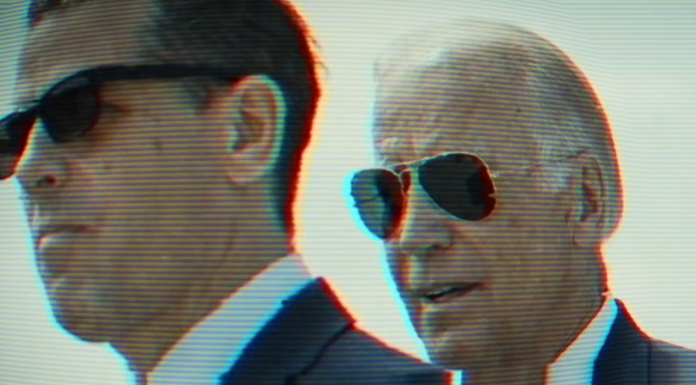(Jacob Bruns, Headline USA) Recently released memos indicate that President Joe Biden’s “quid pro quo” extortion of Ukraine was not based upon policy concerns, but rather his own personal interest, Just the News reported.
In 2015, during Biden’s last years in the White House as Barack Obama’s vice president, State, Treasury and Justice Department officials formed a task force–the Interagency Policy Committee–and determined that Ukraine was deserving of a $1 billion U.S. loan guarantee.
“Ukraine has made sufficient progress on its reform agenda to justify a third guarantee,” reads an Oct. 1, 2015 memo.
Biden, however, threatened to withhold the loan to Ukraine, presumably in order to secure the cooperation of the foreign nation’s leaders.
According to the narrative of the mainstream media, Biden withheld the funding until Ukraine agreed to fire Prosecutor General Viktor Shokin in order to enforce a pre-determined U.S. policy.
Rather, it increasingly appears that Biden sought to protect Burisma–and by extension his son, Hunter, and his own personal reputation–which was feeling the heat of Shokin’s latest investigation.
Shokin’s investigation was based upon a hunch, later to be affirmed, that Burisma Holdings, an energy firm, was engaged in a bribery scheme with the Biden family.
Notably, Biden seems to have collaborated with former Ukrainian President Petro Poroshenko to secure Shokin’s firing.
The memos also show that State Department officials sent a message to Shokin before his firing, sending the opposite message. Further, top U.S. anti-corruption officials blamed the younger Biden for undercutting the progress that the nation had made in clearing away governmental corruption.
According to the report, George Kent, a top U.S. ambassador, told former Ambassador Marie Yovanovitch at the end of the Obama administration that Hunter had derailed Ukraine’s plans to purge corruption.
“The real issue to my mind was that someone in Washington needed to engage VP Biden quietly and say that his son Hunter’s presence on the Burisma board undercut the anti-corruption message the VP and we were advancing in Ukraine,” Kent wrote in November of 2016.
He added that was because “Ukrainians heard one message from us and then saw another set of behavior with the family association with a known corrupt figure whose company was known for not playing by the rules.”

